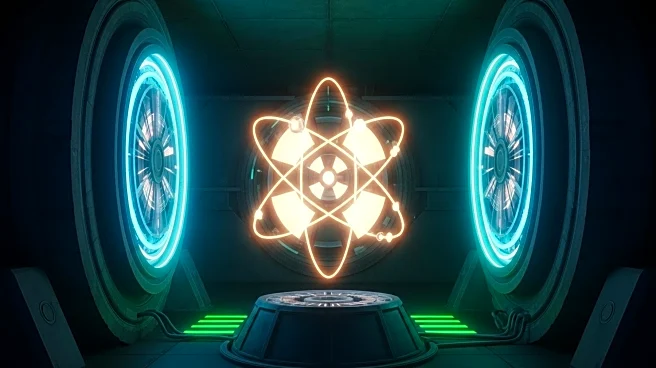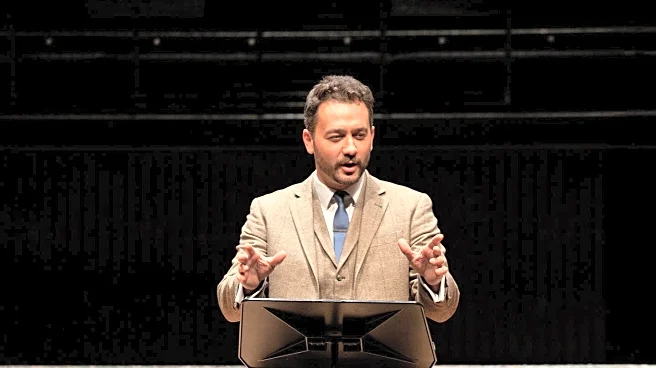What's Happening?
The Zaporizhzhia nuclear power plant in Ukraine, the largest in Europe, is experiencing its longest power outage since the onset of the war. Captured by Russian forces early in the conflict, the plant has been disconnected from external electricity supply for over a week, relying on emergency generators to cool its inactive reactors and spent fuel. Rafael Grossi, head of the International Atomic Energy Agency (IAEA), emphasized the urgency of restoring reliable external power to ensure nuclear safety. Ukrainian President Volodymyr Zelenskyy described the situation as critical, noting that backup systems were not designed for prolonged use. The IAEA is engaged in discussions with Russian and Ukrainian officials to restore off-site power, highlighting the unsustainable nature of the current backup system.
Why It's Important?
The prolonged power outage at the Zaporizhzhia nuclear plant poses significant risks to nuclear safety, with potential consequences for both Ukraine and the broader region. The reliance on diesel generators, which are considered a last line of defense, underscores the precariousness of the situation. A complete loss of power could lead to fuel overheating if cooling systems fail, reminiscent of the Chernobyl disaster's lasting impact. The ongoing conflict in the region complicates efforts to repair power lines and ensure fuel deliveries for the generators. The situation highlights the broader challenges of maintaining nuclear safety amid military conflict and the geopolitical tensions surrounding the control of the plant.
What's Next?
Efforts to restore external power to the Zaporizhzhia plant are ongoing, with the IAEA facilitating talks between Russian and Ukrainian officials. The plant's staff continues to rotate diesel generators to maintain a steady power supply, while ensuring fuel deliveries remain a priority. The geopolitical situation remains tense, with Ukraine blaming Russian artillery for the power loss, a claim Moscow denies. The international community is closely monitoring the situation, given the potential for escalation and the historical context of nuclear incidents in the region. The IAEA's involvement underscores the importance of international cooperation in addressing nuclear safety concerns.
Beyond the Headlines
The situation at Zaporizhzhia raises broader questions about the safety and security of nuclear facilities in conflict zones. The reliance on backup systems not designed for extended use highlights vulnerabilities in nuclear infrastructure. The geopolitical implications of Russia's annexation of the region and the ongoing conflict further complicate efforts to ensure safety. The incident underscores the need for robust international frameworks to address nuclear safety in conflict zones and the importance of diplomatic efforts to resolve territorial disputes impacting critical infrastructure.









